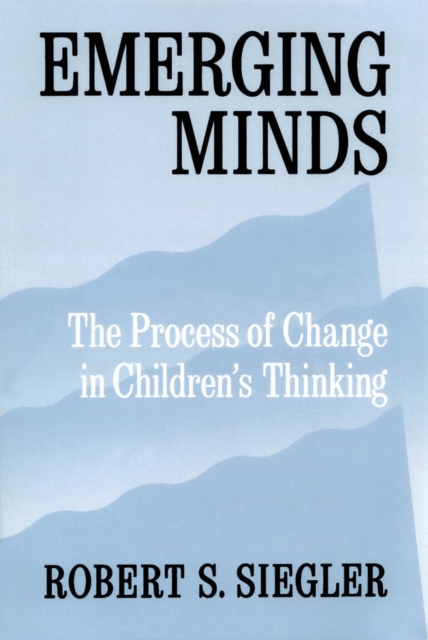
Emerging Minds : The Process of Change in Children's Thinking PDF
by Robert S. Siegler
Description
How do children acquire the vast array of concepts, strategies, and skills that distinguish the thinking of infants and toddlers from that of preschoolers, older children, and adolescents?
In this new book, Robert Siegler addresses these and other fundamental questions about children's thinking.
Previous theories have tended to depict cognitive development much like a staircase.
At an early age, children think in one way; as they get older, they step up to increasingly higher ways of thinking.
Siegler proposes that viewing the development within an evolutionary framework is more useful than a staircase model.
The evolution of species depends on mechanisms for generating variability, for choosing adaptively among the variants, and for preserving the lessons of past experience so that successful variants become increasingly prevalent.
The development of children's thinking appears to depend on mechanisms to fulfill these same functions.
Siegler's theory is consistent with a great deal of evidence.
It unifies phenomena from such areas as problem solving, reasoning, and memory, and reveals commonalities in the thinking of people of all ages.
Most important, it leads to valuable insights regarding a basic question about children's thinking asked by cognitive, developmental, and educational psychologists: How does change occur?
Information
-
Download - Immediately Available
- Format:PDF
- Publisher:Oxford University Press
- Publication Date:29/10/1998
- Category:
- ISBN:9780195352085
Information
-
Download - Immediately Available
- Format:PDF
- Publisher:Oxford University Press
- Publication Date:29/10/1998
- Category:
- ISBN:9780195352085






